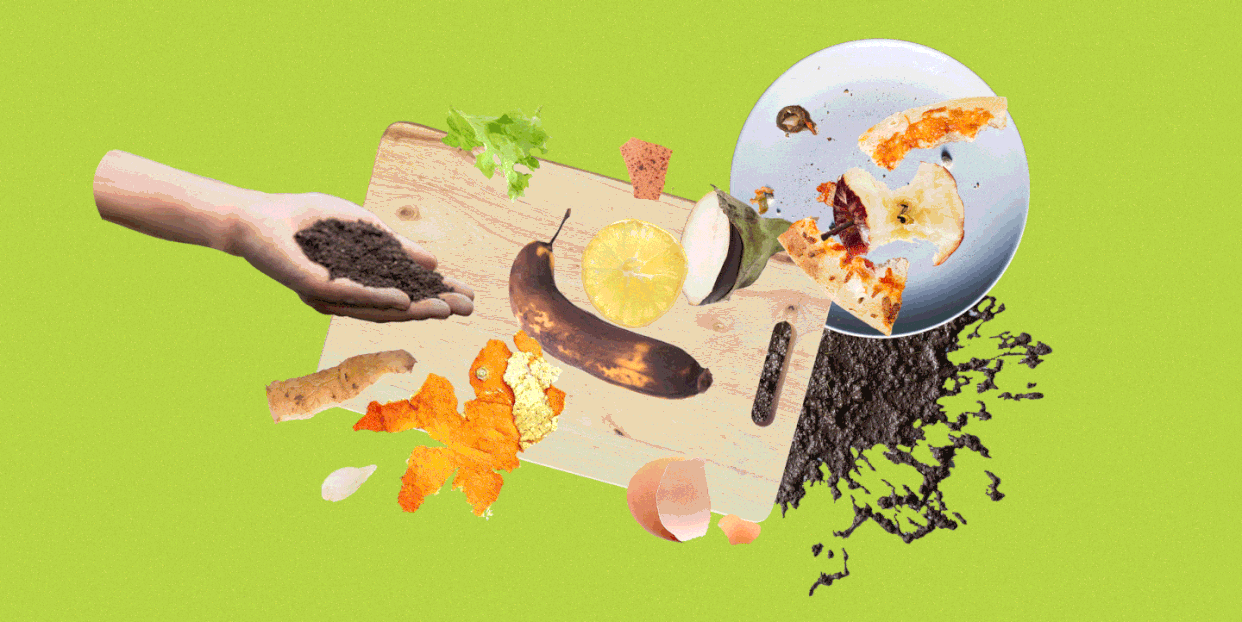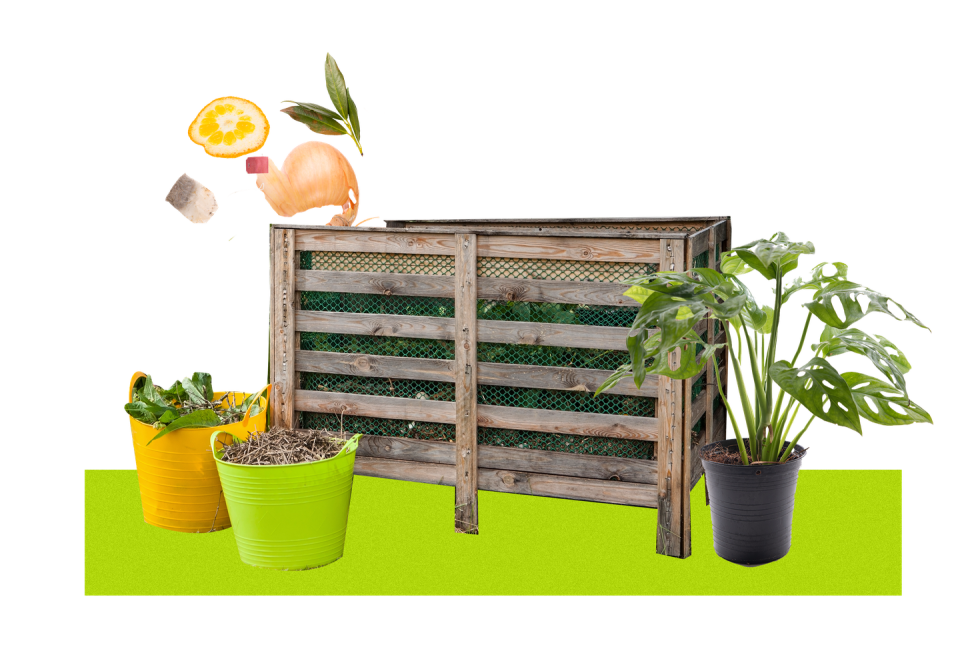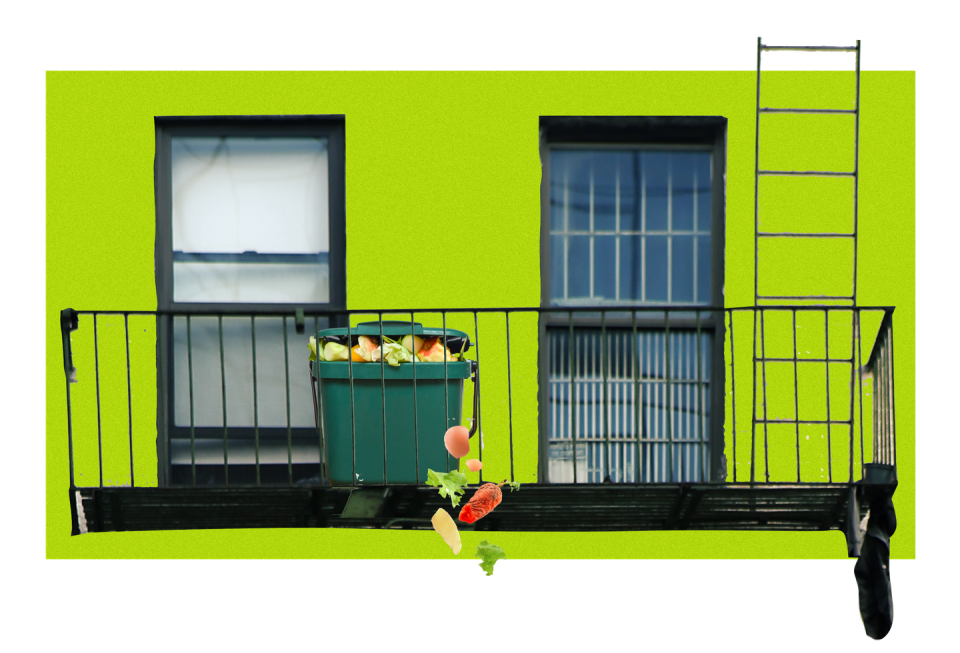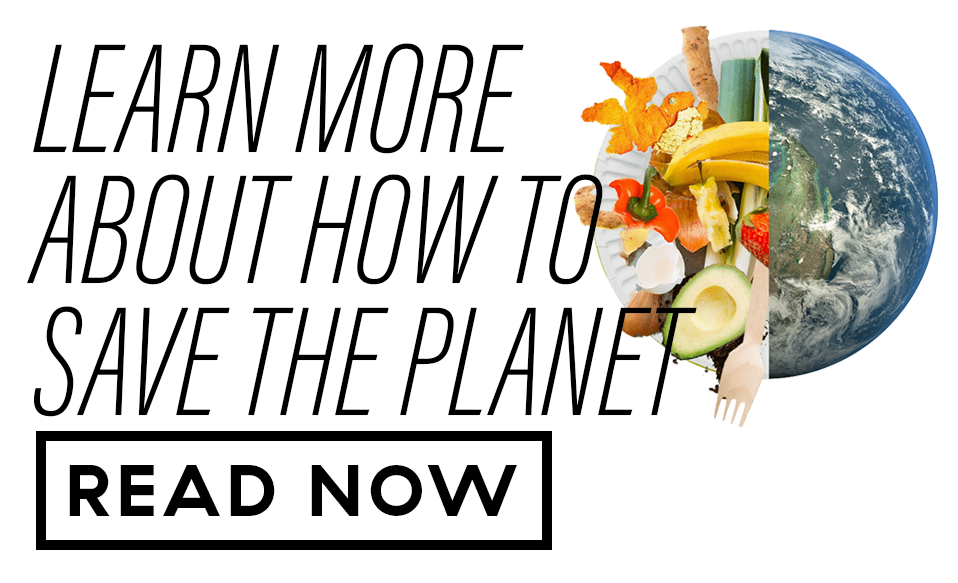Freezing Your Food Scraps Is The Easiest Way To Compost

Have you ever prepped a vegetable-heavy dinner, looked around at your pile of carrot tops, onion peels, and broccoli stems, and been shocked at all the scraps you've produced? Tossing food remnants like these in the trash can feel like second nature, a seemingly harmless step of meal cleanup. I used to do it without skipping a beat. Now, I search for even the tiniest food particles (garlic skin on my cutting board, lemon zest stuck in my Microplane) in pursuit of making sure they meet my kitchen BFF: the compost bowl.
OK, so why the obsession? Food scraps and garden waste account for 28 percent of what we throw away at home, according to the EPA, and even though tossing organic material might not feel as bad as, say, used paper towels or plastic wrap, it still ends up in a landfill. Composting is a way to recycle your food scraps. Before you start thinking composting isn't for you—you're not a treehugger!—think again. If you're into house plants (and it's 2021, who isn't?!), "compost is an amazing soil amendment", says Rebecca Louie, founder of The Compostess and certified NYC Master Composter. "It will slowly infuse nutrients into the soil and make your plants more efficient."
Composting can be as simple as stowing food scraps in your freezer, then dropping them off to a community group who wants them so much more than you do, or more complicated if you want to get really into it. How you do it depends on your living situation: Will you be composting on your fifth-floor fire escape or in your backyard? Learn the basics with our guide, and before you know it, you'll be saving all of your micro food scraps, too.

What is composting?
The easiest way to think of it: recycling your food scraps. Rather than sending them to a landfill (and further contributing to greenhouse gas emissions), composting turns banana peels, citrus rinds, and egg shells into nutrient-rich, fertile soil. This happens at a faster speed than the natural decomposing process, as composting provides an environment with the ideal microbes and bacteria. "My favorite metaphor for composting is mixing your favorite cocktail," says Louie, who explains that there are two key ingredients for making it work: "the greens", nitrogen-rich fruit and vegetable scraps, and "the browns", dry, crunchy leaves. "When you mix these up, you have compost," she says. Easy, right?
What can I compost?
More than just food!
Fruits and vegetables
Eggshells
Coffee grounds
Nutshells
Tea bags
Houseplants
Garden and grass clippings and leaves
Small pieces of cardboard (uncoated)
Shredded newspaper
Wood chips
What can't I compost?
You want to avoid items that attract rodents and pests, create odor, or might contain harmful substances to either plants or humans.
Dairy products and eggs
Fats, grease, oils
Meat, meat scraps, or fish bones
Pet feces
Diseased plants or yard trimmings treated with chemicals

How do I start composting...if I live in an apartment?
If you don't have an outdoor space that can house a compost bin, fear not. Many towns and cities have organizations, often associated with community gardens and farmers markets, that offer free compost pickup. Head to CompostNow, enter in your zip code, and see what local services are in your area. (Note that some have been suspended during the COVID-19 pandemic.) Check to see if your hometown offers composting with garbage pickup. There are now more than 90 cities, including San Francisco, Seattle, and Boulder, that offer a compost bin not just for yard waste, but for food scraps, too.
Once you figure out where you'll be dumping your food scraps, start saving them. Some people prefer to keep a small compost bin on their counter or under the sink, while others (myself included) would rather eliminate any chance of smell and keep everything in the freezer. This also makes the commute with your compost more enjoyable—and stink free!
If you have access to a small outdoor space (ie a balcony) you can try stealth composting, an option "for those who are constrained by limited space, or hypercritical neighbors, or are discouraged at the prospect of crossing a snowy yard to the compost bin", according to The Compost Education Program. Essentially you create a mini compost system within a trash can so it stays concealed. All you need are two plastic containers (one smaller than the other) and a drill.
How do I start composting...if I live in a house with a backyard?

If you want to go beyond an indoor compost bin to save your scraps and really start composting, here's one route: Take an empty garbage bin, drill some holes into the bottom to help with aeration, and add a thick layer of "the browns" (dry, crunchy leaves) on the bottom. Now it's ready for food scraps. Whenever there's an excess of fruits and vegetables in your compost, add more brown stuff (dry leaves, coffee grounds, cardboard) to prevent it from becoming overly slimy, which will make the whole composting process less effective. Also make sure that you're giving everything a good turn with a rake once in a while to help break things down.
How do you know when it's ready to use? "It shouldn't resemble food scraps anymore," says Vivian Lin, founder of Groundcycle, a Brooklyn-based door-to-door service that picks up compost and delivers farm-fresh local produce to the borough's residents. "If you bring it to your nose, it should smell earthy, not sour."
You Might Also Like

